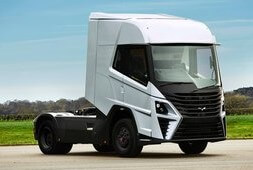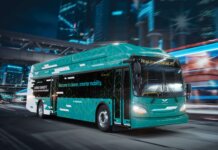United Kingdom-based Hydrogen Vehicle Systems (HVS) has signed a Memorandum of Agreement (MoA) with Kopala International SL, headquartered in Spain. This strategic collaboration will see HVS supply left-hand-drive hydrogen-electric Heavy Goods Vehicles (HGVs) as part of its Transition to Zero Program, aimed at advancing the decarbonization of the European road haulage industry.
HVS has secured a pre-order of 50 left-hand-drive HGVs, marking the company’s first major entry into the European market.
The partnership will provide Kopala and its associated logistics operators with a roadmap to transition their fleet to zero-emission solutions. Under the agreement, Kopala will deploy the HGVs on real-world delivery routes, while HVS’ Transition to Zero Program will offer support across areas including technology evaluation, hydrogen fueling infrastructure, financial options, safety standards and government incentives.
Adoption of hydrogen in the heavy goods sector is a strategic objective of the Spanish government. In a draft of its national energy and climate plan leading up to 2030, Spain has a target of 11 gigawatts of electrolyzer capacity for green hydrogen production, which is the highest in all of Europe.
The Spanish government has approved the “Hydrogen Roadmap: a Commitment to Renewable Hydrogen.” With this plan, the government is promoting the deployment of this sustainable energy source, which will be key to Spain achieving climate neutrality by 2050 at the latest. The European Commission’s Competition officials have given the green light to state aid of 1.2 billion euros for Spain’s nascent renewable hydrogen industry.
“Kopala International’s commitment to this program is a testament to the growing appetite for hydrogen solutions in European logistics, and we’re proud to be leading this effort with our cutting-edge FCEV technology,” says Phil Henrik, HVS chief commercial officer.
“Partnering with HVS enables us to position ourselves as early adopters of hydrogen-powered logistics, and we are eager to take part in their Transition to Zero Program,” adds Jeffrey Dost, CEO of Kopala.
Signing of the MoA allows HVS to play a major part in the HydrogenizingBCN Initiative, a hydrogen project launched in 2020 to build a hydrogen corridor consisting of a green hydrogen-powered mobility network infrastructure from Barcelona into the Iberian Peninsula and Europe.
Encouraging public-private cooperation to tackle jointly the legal and financial challenges, HydrogenizingBCN is working toward opening the first leg of its proposed hydrogen corridor by 2027.
In alignment with the European Union’s Green Deal and Spain´s Green Hydrogen Roadmap, HydrogenizingBCN has established cooperative relationships with local and regional administrations, research institutes and special interest groups, as well as private partners. Liaising with these groups and organizations will help Kopala achieve its Phase 1 target consisting of the production and supply of 20 MW of green hydrogen to fuel up to 200 hydrogen fuel cell-powered vehicles by early 2027.






